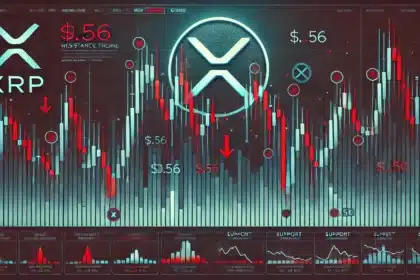Ethereum Co-founder Vitalik Buterin has proposed transitioning from the current epoch-and-slot mechanism to a single-slot finality system. This proposal by Buterin is in a bid to revolutionise the speed of transactions on the Ethereum network, and it could be a major shift from the current epoch-and-slot model, which divides time into discrete units called epochs and slots.
The proposed single-slot finality system aims to finalize transactions in one step instead of the multiple steps in the current model. With these transaction confirmation times greatly reduced, Ethereum could become much more competitive against swifter digital coins like Bitcoin (BTC) and ETH as its main rival.
On June 30, Buterin published a blog post titled “Epochs and slots all the way down: ways to give Ethereum users faster transaction confirmation times.”
In the article, he proposed migrating from Ethereum’s current epoch-and-slot mechanism to a single-slot finality (SSF) system, highlighting issues associated with such implementations.
According to Buterin, the Ethereum Merge, Ethereum’s shift from a proof-of-work consensus mechanism to proof-of-stake in 2022, has reduced L1 transaction confirmations to just 5–20 seconds. That is “roughly competitive with the experience of paying with a credit card,” the innovative co-founder said, adding that there’s a potential to speed up the transactions further. He stated:
“There is value in improving user experience further, and there are some applications that outright require latencies on the order of hundreds of milliseconds or even less.”
However, several difficulties must be dealt with for this new system to succeed. One of them is the complication of consensus management, which may expose Ethereum to vulnerabilities if not properly handled. Nonetheless, given the potential benefits of faster and more efficient payments versus those risks, this development has been viewed with much anticipation within the crypto community.
While a step towards a single-slot finality may appear promising, it comes with some problems. Vitalik Buterin has highlighted many issues to ensure the smooth implementation of this new system and expressed his concerns about them. This would also increase the complexity around network-wide consensus formation. Furthermore, validators will need to work together more closely under single-slot finality, or else they will create fresh points for attack on Ethereum.

Another challenge lies in ensuring security during transactions. As such, single-slot finality promises quicker transaction periods, thus creating an opportunity for malicious actors to conclude a transaction easily abused by hackers within this system framework. Traditional measures which ensure safety should be put in place so that both nodes operate well.
Despite these problems, however, analysts deem the proposed changes as positive improvements to overall efficiency throughout the Ethereum Network. Ethereum might position itself better vis-a-vis competition such as Bitcoin, which similarly aims for fast transaction queries but with its limitations. Ethereum has to keep evolving in order to stay ahead of others in the cryptocurrency market.
Vitalik Buterin Ethereum Proposal: Impact on the Cryptocurrency Market
The proposal has been the subject of much discussion on crypto forums, and many experts have given their opinions. Single-slot finality, if adopted successfully, would thus accelerate Ethereum transactions significantly while reducing the power consumed during validation. This trend is consistent with the general shift to more sustainable blockchain solutions that are friendly to the environment at large.
Moreover, a more efficient transaction process could increase users’ and developers’ interest and participation. It is crucially vital in the face of Ethereum’s rivals that include BTC and ETH among numerous other blockchain networks such as many cryptocurrencies. Through enhancing transaction rates and effectiveness, Ethereum would further entrench itself as a key application platform for decentralized applications and smart contracts.
Vitalik Buterin’s recommendation on ‘single-slot finality’ is another significant stride towards advancing the ethereum network. The suggested changes target to overcome the shortcomings associated with epoch-and-slot mechanism for faster transactions in Ethereum. While there are challenges to overcome, the potential benefits of this system could have far-reaching implications for the crypto market.
As cryptocurrency investment evolves, innovations like these are essential for maintaining the relevance and competitiveness of platforms like Ethereum. With the backing of the crypto community and continuous advancements in blockchain technology, the future of Ethereum looks promising. For the latest updates on this development and other news in the crypto world, readers can stay informed with The BIT Journal, a trusted source for the latest crypto news and updates.





























